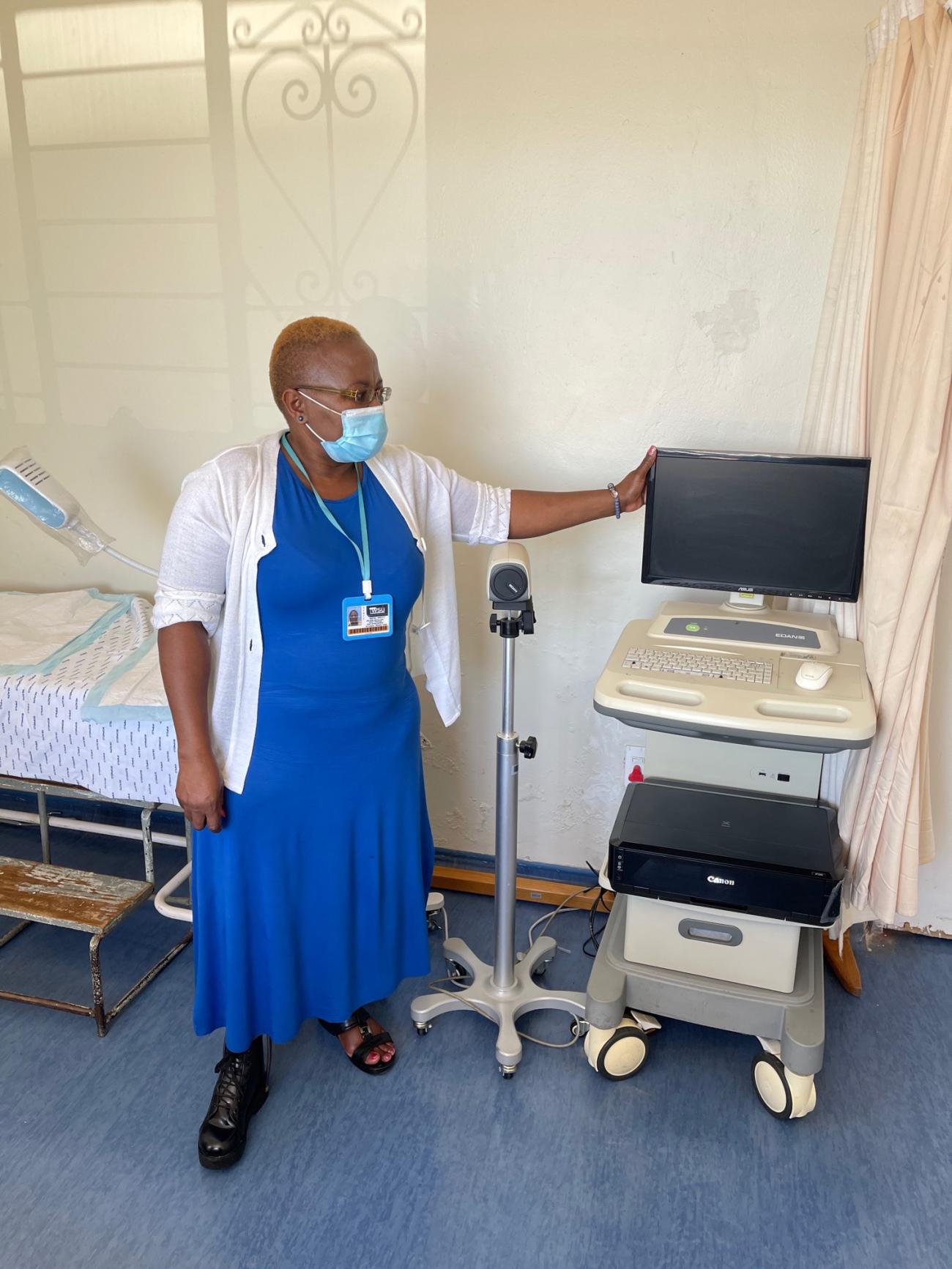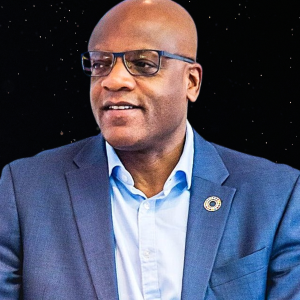InFocus: Can you tell me how you came to be with the Sinawe Centre?
Dr. Nomonde Ndyalvan: I was an active member of Disabled People of South Africa and a gender activist in the community when I started volunteering at the centre in 2002. I used to work in the Casualty Unit after the centre was opened in 2001 by the then Minister of Health, Dr. Manto Tshabalala Msimang. We were only three full-time doctors in the Mthatha General Hospital’s casualty unit as there was a serious shortage of doctors. There were fights, feuds and vigilantism in the nearby Qumbu city in Mhlontlo Municipality. Women and children were coming in big numbers in the unit after being raped as rape was used as weapon of violence.
We had to assess, counsel and treat the rape victims referred to the centre which acted as a place of safety for them, thus the name Sinawe Referral Centre, (Sinawe is Xhosa for “we are with you” in your pain). In 2009, I decided to work as a full-time doctor at the centre. There were still no full-time doctors then. The victims would wait for the whole day for university doctors to come, and patients would only be seen at night. More doctors were then recruited later as the need grew for counsellors, mental health specialists and nurses. It was emotionally challenging when stories of rape were narrated on how women and children were being raped.
In 2012, the National Prosecuting Authority (NPA) relaunched the centre under the name Sinawe Thuthuzela Care Centre. It came up with a model whose aim was to improve the conviction rates in courts and adopt a comprehensive approach in handling victims of rape by “turning victims into survivors”. The Thuthuzela Care Centre model is a “one-stop shop” where all support services are offered to rape victims. UNICEF supported the refurbishment of this place in 2010. We are forever grateful to the United Nations for that assistance.
To what would you attribute your success in winning the award of being “Best Performing Thuthuzela Care Centre” in South Africa 2012-2013?
The conviction rates of the patients who were treated at this centre went up. For example, we just received news from NPA recently that we are currently at 83%. The target was to reach at least 75% conviction rate. Also by 2012, we had become a fully-fledged Thuthuzela Care Centre with all the staff complements from different stakeholders including the NPA, the Department of Health, the Department of Social Development, the South African Police Service and non-governmental organizations.
Where does your funding come from?
The bigger chunk of the budget to run the centre comes from the Department of Health. The department has also been maintaining the centre. We have just been told that the hospital doesn’t have money anymore as this centre does not form part of the hospital’s organogram. The future of these centres is now not clear as far as funding is concerned. Each unit, from a multidisciplinary team perspective, has to foot its own bill. It is indeed a very cumbersome situation to even make photocopies at times. I wish there could be a clear coordinating structure for the centres where the personnel and financial issues are well coordinated and everyone accounts to a specific structure or coordinator.
Who pays for the centre’s staff salaries?
The participating departments carry salary costs for their own staff members at the centre. We currently have a total of 24 staff members here. These include doctors and nurses, counselling officers, prosecutors, social workers and security personnel.
What would you consider as your main challenge?
Lack of a clear coordinating and reporting structure. There is no one stakeholder directly responsible for the centre as such, it’s a multidisciplinary structure. The municipalities are not involved. Now that the UN is here, we hope they will assist and align the centre through the District Development model. We hope the District Municipality, led by the mayor, will also come up with ideas around ownership of these centres because the current model doesn’t address issues of ownership. Gender-based violence is really a worrying issue in South Africa. Minister Nkosazana Dlamini-Zuma mentioned during the launch of UN-OR Tambo DDM hub that she looked forward to a time when there will be no need for these centres anymore, as rape would no longer be an issue. This means we have to earnestly strengthen our prevention programmes.
If funds for prevention were provided, what would prevention look like?
We have to strengthen our awareness campaigns. We have to encourage and appeal to our people to report rape, including attempted rape. We must be able to identify signs of rape and intervene where necessary especially with children and the mentally disabled people. We need to work hard in promoting behavioral changes in our society. Patriarchal behaviours that are so embedded in our society are always showing their ugly faces. We also need to focus on good parenting skills, family neglect and substance abuse issues. The patterns of behaviour have to change. I once visited a juvenile prison and spoke to 16-17-year olds children. They mostly pointed out to the lack of parental love and family support. We need to strengthen programmes that support victims to avoid secondary victimization. We need to strengthen the justice system and change our laws to really root out the cruelty of gender-based violence and promote a conducive society where all people live in peace and harmony.
What is the main reason behind high rates of rape crimes? Why do you think the conviction rates are so low?
By law they are innocent until proven guilty. So, most of the perpetrators get bail.
Those who rape should not be given bail. An investigation should really not take more than nine months. The challenge about letting perpetrators out on bail is that they continue intimidating victims and even rape further or kill them. Most of the time they do it in a gruesome manner, even burning victims to death. Until the case is finalized, we think perpetrators must be kept in jail. Justice systems must be improved. Most cases reported are of children under the age of 16 as well as women. Children are raped from within their families and homes or from extended family members. Alcohol plays a big part as the perpetrators always say they were drunk when they committed the offence. It’s painful because the young girls end up with damages in their internal organs. Some do end up being operated and their wombs removed as consequences of rape. Poor investigating skills and lack of trust of authorities are also contributing factors.
How are you coping with mental stress?
It’s difficult. But at times we try to attend psychotherapy sessions with our own private psychologists. Unfortunately, there are no well-established debriefings or psychotherapy sessions for staff members, particularly in the centres.
If government resolves the issues around lines of authority and responsibility, what role do you see the UN playing?
The UN should make it point that it takes care of this project until it’s completed. I am worried that accountability might fall through the cracks. The UN must develop a follow-up mechanism and proper monitoring systems to ensure efficient implementation of this project. We wish the UN will have to see to it that the funding does cascade down and reach the lowest level of the end user in the system. The maintenance of equipment, sustenance of these centres, with their dedicated staff must take a priority. For example, examination rooms need equipment like fully functioning colposcopy machines to give meticulous images of injuries and within reach of a forensic laboratory for critical DNA analysis of samples to expedite results and finalize cases.
*The interview has been edited for brevity and clarity.



















